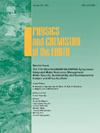推出创新解决方案,释放坦桑尼亚未充分利用的地下水和雨水潜力
IF 4.1
3区 地球科学
Q2 GEOSCIENCES, MULTIDISCIPLINARY
引用次数: 0
摘要
地下水获取、可靠降雨、雨水收集和气候智能型技术对于可持续粮食生产和增强水抵御能力至关重要。然而,分散的运营、有限的知识和不充分的跨部门合作阻碍了改善水资源获取和农业生产力的综合解决方案的实施。本研究调查了坦桑尼亚南部和西北部高地地区地下水和雨水资源在支持农业生产方面的未充分利用潜力,这些地区面临着日益增长的用水需求和气候压力。采用混合方法,通过家庭调查、关键信息者访谈、焦点小组讨论、实地观察、气候数据插值、WEF-Nexus指数分析和广泛的文献综述,收集了四个农业生产区的数据。定量数据采用SPSS 20和Microsoft Excel进行分析,定性数据采用专题分析和趋势分析。研究表明,超过70%的家庭依赖雨水收集,尽管这主要是通过基本的系统完成的。地下水的使用很普遍,但62%的人报告说,由于过度使用和管理不善,产量下降。微灌的采用仍然有限,但在统计上提高了生产率(p = 0.030)。研究结果强调了水资源利用的重大障碍,包括财政限制、技术不足、淤积、地下水位下降和治理结构薄弱。气候变率和人为压力进一步加剧了这些挑战,限制了雨水收集和地下水管理的有效性。此外,知识差距和有限的社区能力阻碍了创新和气候智能型水解决方案的采用。尽管存在这些挑战,但该研究强调了雨水和地下水在加强灌溉系统、促进水安全和提高农业恢复力方面的巨大潜力。报告建议建立健全的水管理系统、基础设施、能力建设投资、鼓励采用技术的政策改革以及社区驱动的方法,以充分发挥这些资源的潜力。这些措施对于实现可持续发展目标和确保粮食和水安全至关重要。因此,释放这些水资源的潜力需要综合治理、对抗灾基础设施的投资以及当地社区的能力建设。本文章由计算机程序翻译,如有差异,请以英文原文为准。
Unveiling innovative solutions to unlock underutilized groundwater and rainwater potential in Tanzania
Groundwater access, reliable rainfall, rainwater harvesting, and climate-smart technologies are vital for sustainable food production and enhancing water resilience. However, fragmented operations, limited knowledge, and insufficient cross-sectoral collaboration hinder the implementation of integrated solutions to improve water access and agricultural productivity. This study investigates the underutilized potential of groundwater and rainwater resources in supporting agricultural production in Tanzania's southern and northwest highlands, regions facing increasing water demands and climatic stress. Employing a mixed-methods approach, data were collected across four agriculturally productive districts through household surveys, key informant interviews, focus group discussions, field observations, climate data interpolation, WEF-Nexus index analysis, and an extensive literature review. Quantitative data were analyzed using SPSS 20 and Microsoft Excel, while qualitative data were processed through thematic and trend analysis. The study reveals that over 70 % of households rely on rainwater harvesting, although this is primarily done through rudimentary systems. Groundwater use is widespread, yet 62 % report declining yields due to overuse and poor management. The adoption of micro-irrigation remains limited, but it statistically improves productivity (p = 0.030). The findings highlight significant barriers to water resource utilization, including financial constraints, inadequate technology, siltation, declining groundwater levels, and weak governance structures. Climate variability and anthropogenic pressures further exacerbate these challenges, limiting the effectiveness of rainwater harvesting and groundwater management. Moreover, knowledge gaps and limited community capacity undermine the adoption of innovative and climate-smart water solutions. Despite these challenges, the study underscores the substantial potential of rainwater and groundwater to enhance irrigation systems, promote water security, and increase agricultural resilience. It recommends robust water management systems, infrastructure, capacity-building investments, policy reforms to incentivize technology adoption, and community-driven approaches to unlock the full potential of these resources. These measures are critical to achieving sustainable development goals and ensuring food and water security. Thus, unlocking the potential of these water sources requires integrated governance, investment in resilient infrastructure, and capacity-building among local communities.
求助全文
通过发布文献求助,成功后即可免费获取论文全文。
去求助
来源期刊

Physics and Chemistry of the Earth
地学-地球科学综合
CiteScore
5.40
自引率
2.70%
发文量
176
审稿时长
31.6 weeks
期刊介绍:
Physics and Chemistry of the Earth is an international interdisciplinary journal for the rapid publication of collections of refereed communications in separate thematic issues, either stemming from scientific meetings, or, especially compiled for the occasion. There is no restriction on the length of articles published in the journal. Physics and Chemistry of the Earth incorporates the separate Parts A, B and C which existed until the end of 2001.
Please note: the Editors are unable to consider submissions that are not invited or linked to a thematic issue. Please do not submit unsolicited papers.
The journal covers the following subject areas:
-Solid Earth and Geodesy:
(geology, geochemistry, tectonophysics, seismology, volcanology, palaeomagnetism and rock magnetism, electromagnetism and potential fields, marine and environmental geosciences as well as geodesy).
-Hydrology, Oceans and Atmosphere:
(hydrology and water resources research, engineering and management, oceanography and oceanic chemistry, shelf, sea, lake and river sciences, meteorology and atmospheric sciences incl. chemistry as well as climatology and glaciology).
-Solar-Terrestrial and Planetary Science:
(solar, heliospheric and solar-planetary sciences, geology, geophysics and atmospheric sciences of planets, satellites and small bodies as well as cosmochemistry and exobiology).
 求助内容:
求助内容: 应助结果提醒方式:
应助结果提醒方式:


